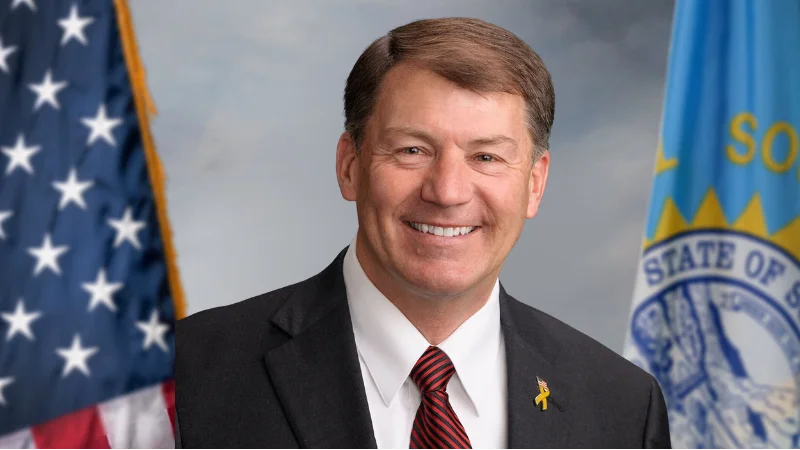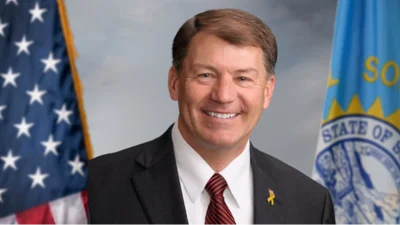Senator Mike Rounds, US Senator for South Dakota | Official U.S. Senate headshot
Senator Mike Rounds, US Senator for South Dakota | Official U.S. Senate headshot
Senator Mike Rounds, who represents South Dakota in the U.S. Senate, shared several posts on his social media account addressing biofuels, constitutional history, and the Senate confirmation process.
On September 16, 2025, Senator Rounds highlighted a meeting with Growth Energy to discuss biofuel policies and expressed gratitude for receiving an award. He stated, "Biofuels are important to South Dakota – was happy to have Growth Energy in to discuss the implementation of 45Z and our shared goal of year-round access to E15. Honored to accept the Fueling Growth award from them." Growth Energy is a prominent biofuel trade association advocating for expanded ethanol use in fuels.
The following day, on September 17, 2025, Senator Rounds marked Constitution Day by referencing the signing of the U.S. Constitution in 1787. He wrote, "On this day in 1787, the US Constitution was signed. This document is still the guiding force for our nation 238 years later."
Later that same day, he commented on delays in presidential nominee confirmations during President Trump’s administration. In his post dated September 17, 2025, he stated: "President Trump is the first president on record whose nominees have yet to receive confirmation by voice vote or unanimous consent. Democrats continue to drag nominees with bipartisan support through time-consuming roll call votes, taking an average of 94 days. It's" Voice votes and unanimous consent are traditional methods used in the Senate for swift confirmation of presidential nominees when there is broad agreement.
Biofuels remain a significant industry for South Dakota’s economy due to its large agricultural sector and corn production base.
The U.S. Constitution was signed on September 17, 1787 at Independence Hall in Philadelphia and remains foundational law more than two centuries later.
Senate rules allow nominations to be confirmed either by roll call vote or less formal procedures like voice vote or unanimous consent if no senator objects; extended delays can occur when senators request full roll calls even when there is bipartisan support.




 Alerts Sign-up
Alerts Sign-up